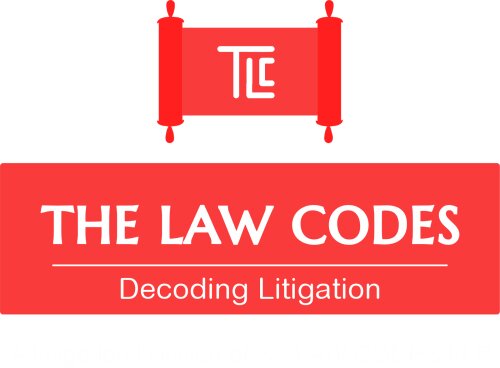Best Father's Rights Lawyers in Chandigarh
Share your needs with us, get contacted by law firms.
Free. Takes 2 min.
Free Guide to Hiring a Family Lawyer
List of the best lawyers in Chandigarh, India
About Father's Rights Law in Chandigarh, India:
Father's rights refer to the legal rights of fathers to have access to their children and participate in their upbringing. In Chandigarh, India, fathers have certain legal rights when it comes to matters such as child custody, visitation, and financial support.
Why You May Need a Lawyer:
You may need a lawyer specializing in Father's Rights in Chandigarh if you are going through a divorce or separation and need to negotiate child custody or visitation rights. A lawyer can also help you establish paternity, enforce visitation orders, or modify child support agreements.
Local Laws Overview:
In Chandigarh, laws related to Father's Rights are governed by the Hindu Minority and Guardianship Act, 1956, the Guardians and Wards Act, 1890, and the Juvenile Justice (Care and Protection of Children) Act, 2015. These laws outline the rights and responsibilities of fathers in matters related to their children.
Frequently Asked Questions:
1. Can fathers in Chandigarh file for child custody?
Yes, fathers in Chandigarh can file for child custody under the Hindu Minority and Guardianship Act, 1956.
2. How can a father establish paternity in Chandigarh?
A father can establish paternity through DNA testing or by voluntarily acknowledging paternity before a court.
3. Can a father petition for visitation rights if the mother denies access to the child?
Yes, a father can petition the court for visitation rights if the mother denies access to the child.
4. Can a father be held responsible for child support in Chandigarh?
Yes, fathers in Chandigarh can be held responsible for providing financial support for their children.
5. How can a father modify a child support order in Chandigarh?
A father can petition the court to modify a child support order if there has been a change in circumstances, such as a loss of income or increase in expenses.
6. Can unmarried fathers in Chandigarh seek custody or visitation rights?
Unmarried fathers can seek custody or visitation rights by establishing paternity and petitioning the court for parental rights.
7. What factors does the court consider when determining child custody in Chandigarh?
The court considers the best interests of the child, the relationship between the child and each parent, and the ability of each parent to provide a stable and nurturing environment.
8. Can a father represent himself in court for father's rights cases in Chandigarh?
While it is possible for a father to represent himself in court, it is advisable to seek legal assistance from a lawyer specializing in father's rights to ensure the best possible outcome.
9. Are there any specific laws protecting the rights of fathers in Chandigarh?
The Hindu Minority and Guardianship Act, 1956, and the Guardians and Wards Act, 1890, contain provisions that protect the rights of fathers in Chandigarh.
10. How can a father in Chandigarh enforce a visitation order if the mother refuses to comply?
A father can petition the court to enforce a visitation order if the mother refuses to comply. The court may impose penalties on the mother for violating the order.
Additional Resources:
If you need legal assistance with father's rights in Chandigarh, you can contact the Chandigarh Legal Services Authority or consult with a lawyer specializing in family law.
Next Steps:
If you require legal assistance with father's rights in Chandigarh, it is advisable to schedule a consultation with a lawyer specializing in family law. They can assess your situation and guide you on the best course of action to protect your rights as a father.
Lawzana helps you find the best lawyers and law firms in Chandigarh through a curated and pre-screened list of qualified legal professionals. Our platform offers rankings and detailed profiles of attorneys and law firms, allowing you to compare based on practice areas, including Father's Rights, experience, and client feedback.
Each profile includes a description of the firm's areas of practice, client reviews, team members and partners, year of establishment, spoken languages, office locations, contact information, social media presence, and any published articles or resources. Most firms on our platform speak English and are experienced in both local and international legal matters.
Get a quote from top-rated law firms in Chandigarh, India — quickly, securely, and without unnecessary hassle.
Disclaimer:
The information provided on this page is for general informational purposes only and does not constitute legal advice. While we strive to ensure the accuracy and relevance of the content, legal information may change over time, and interpretations of the law can vary. You should always consult with a qualified legal professional for advice specific to your situation.
We disclaim all liability for actions taken or not taken based on the content of this page. If you believe any information is incorrect or outdated, please contact us, and we will review and update it where appropriate.












